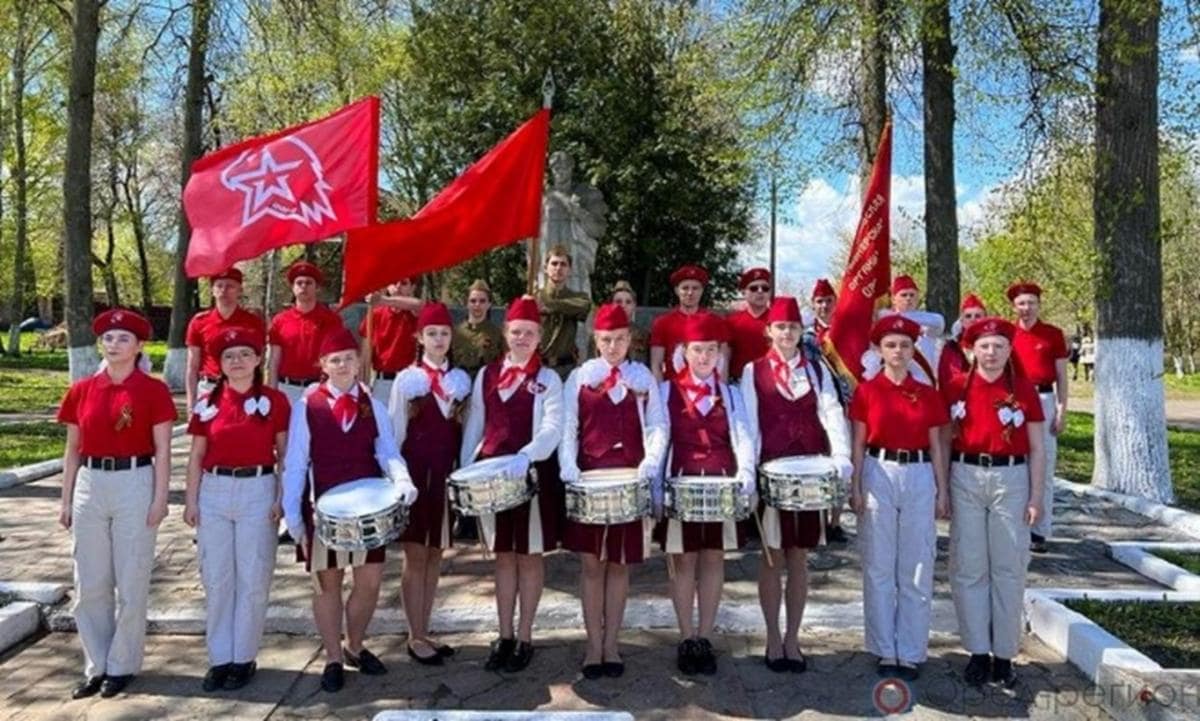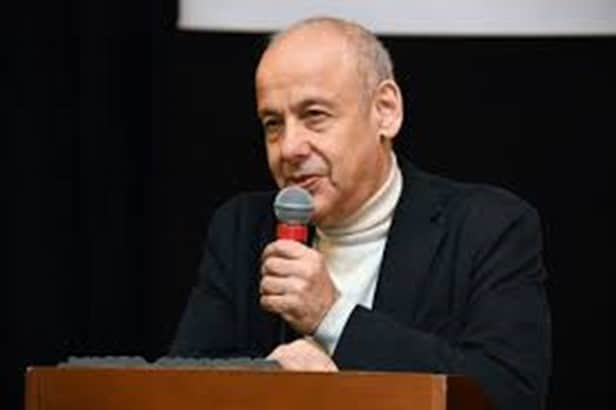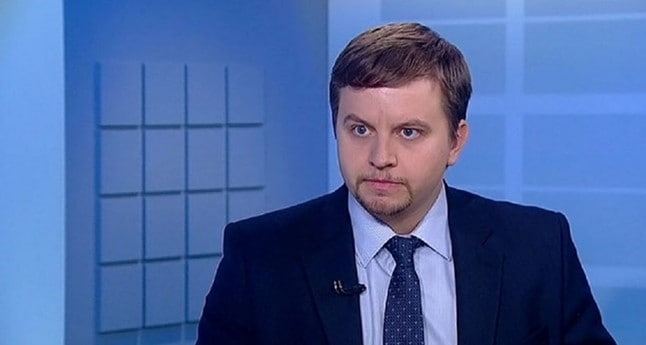On May 17, 2022, the State Duma opened an exhibition dedicated to the 100th anniversary of the All-Union Pioneer Organization named after Vladimir Lenin. It was not only the centenary to the organization's founding that prompted this homage, but also the proposal to revive the organization that is backed by President Vladimir Putin. As part of the anti-Western mood encouraged by the government, proposals to guard the youth against nefarious Western influence have proliferated. Nina Ostanina, chair of the State Duma Committee on Family, Women and Children stated that the leaders of all five Duma factions, as well as its Chairman, Vyacheslav Volodin, supported the committee's proposal. Ostanina reported that the organization doesn't yet have a name, since the authors of the bill have not agreed on it, but its main objectives, tasks and structure are already set. According to her, the organization will unite all youth movements, and the Ministry of Education will be in charge of its activities. Children as early as 6 years old can join such organization.[1]
The Duma deputies dutifully praised the organization and its objectives.
Duma Speaker Vyacheslav Volodin remarked "Today's conversation is more than a conversation about the anniversary of the Pioneer movement. It's a conversation about the history of our country…The situation today is such that there are not simply attempts to rewrite the history, but to erase it, so that Pioneer era, the Great Patriotic War, victories in space exploration and other achievements, would disappear form people's memory." In a parallel with current times Volodin noted that the movement was established in hard times.
Volodin sought to assure the country's citizens that this did not represent a return to Soviet times " it's necessary to analyze everything, so that today only the best examples of that [Soviet] era would be appropriated…If we assume that everything good will be transferred to the new generation, and everything ineffective will be rejected, we can build a country that won't face the challenges and problems that appeared in 1917 and in 1991."
The leader of Russia's Communist Party, Gennady Zyuganov, saluted the 100th anniversary of the Pioneer Movement as no less than the most important event for an entire mankind. Zyuganov stressed that movement's restoration in Russia was supported by President Putin.
Sergey Mironov the A Just Russia leader noted that in his youth the Pioneers taught him to emulate the people, who made contributions to the state instead of "growing up like the TV stars."[2]
In addition to testimonials from the politicians, official public opinion surveys endorsed the reestablishment of a national youth movement.
The All-Russian Center for the Study of Public Opinion (VTsIOM) polled teachers and parents on the issue and found strong support by the respondents.
Among teachers of grades 5-1,1 87% had a positive assessment while only 7% were opposed and 6% were undecided. However, half the teachers thought that the task should be divided amongst a number of organizations while only a third believed that one organization should do the job.
Parents were even more enthusiastic than the educators with 92% supporting the idea. The parents also strongly felt (72%) that various organizations should share the task.[3]
Support was not as one sided as appeared. Russian newspapers conducted their own polls, with varying results. Moskovskiy Komsomolets found that favorable responses were highest among the older generations and lowest among the younger generations. This also raised questions about the accuracy of current polling. Political scientist Aleksander Vedrussov warned that the Pioneers were effective when the Soviet Union could provide people with a career path and declined towards the collapse of the Soviet Union. Therefore, it was necessary to evaluate the successes and shortcomings of the organization prior to reviving it.

Pioneer assembly in Orel Province (Source: Regionalorel.ru)
A report on the discussion surrounding the proposal to revive a national youth movement follows below:
In an article titled "Who Needs a Revival of the Pioneer Movement? Youth Aren't Thrilled with the Idea" Moskovskiy Komsomolets noted the generational disparity in support for the proposal and made it clear that it sided with the younger generation:
"Russia is preparing to revive Pioneer movement. Rituals of raising the national flag and singing the national anthem are being introduced in [Russian] schools. However, as it turns out, different generations in the country have different attitudes towards patriotic education. A recent survey demonstrated that elderly Russians more frequently support the idea of incubating patriots in the school yard, than young people.
"Although at large almost two thirds of Russians agree patriotism lessons should be taught inside the schools, the balance between 'for' and 'against' answers differs by various age groups.
"For instance, among respondents over 60 years of age 75% supported the idea, among the group of respondents between 45-59 years of age - 73%, among the group 35-44 - 69%. The trend continues downward. Of those who have recently graduated from school (young people aged 18 to 24), only 46% agreed with the need for patriotic education in the classroom, that is, less than half of those surveyed.
SUPPORT OUR WORK

"After talking with parents in Moscow, who grew up during the Soviet school period, we became convinced that, on the whole, they support the idea, but with great reservations. Obviously, these nuances were not taken into account in the survey.
"'Personally, I see nothing wrong with restoration of the Pioneer movement, as it will bring together our young generation, and allow them to feel part of a large and multinational country,' believed Alexandra, aged 50, and mother to twin 5th-graders, 'But this doesn't have to be realized in the "communist" format of my childhood. I associate my Soviet school past with obligation and formalism. For example, ties and forage caps, that are unnecessary in my opinion'.
"'I still shudder in recalling how every morning I had to iron my [Pioneer] tie, because if you came to school in a wrinkled tie, you would be reprimanded in front of the entire class. And the very acceptance into the Pioneers was a true stress for us! The best students were the ones to be accepted first; they were getting their ties at the Red Square. The rest, B and C grade students were perceived as almost second-rate kids. Many of those, who didn't make it into the first group became hysterical.'
"'A Soviet legacy that definitely shouldn't be revived is the weekly political information lessons,' said Muscovite Ruslan (age: 43), 'We would come to class at 7:30, take turns going to the blackboard and telling the news we had prepared at home about plants exceeding a [production] plan, about sowing grain... It was so boring! The idea of patriotic education should be realized in a creative way. Maybe one could organize some quizzes about Russian history, flash mobs that are familiar to kids, video clips about the homeland... And it shouldn't be obligatory. We need to get children interested!'
"Lyudmila Ivanovna (age: 69), a teacher at one of Moscow schools, assured "MK" that she and her colleagues are looking forward to strengthening of patriotic education.
"'Just yesterday we were discussing this among school staff. We're all in favor of going back to the past,' said the teacher, 'Today's children are very isolated [from the peers], and if there would be pioneers and Little Octobrists it will be a very good thing. The uniform, insignia, mottos, the very idea of patriotism, all of this must be brought back. During the school years it all can be inculcated in the children'.
"What, in your opinion, is the reason for this generation-based difference of opinion? The elderly want a return to the past, while the youth have less unity...
"This is attributable to a 20-years-long failure [in education]: after the USSR' collapse no one was engaged in patriotic [education] in our country for a long time, the generation of the 90s missed on these lessons, a disengagement [of people] occurred, a pronounced individualism was flourishing. Children were told, "You need to set a goal and move towards it." As a result, a young, selfish generation grew up, which was ready to abandon a comrade for the sake of career advancement. And back in the day there were stars [a symbol of Little Octobrists], strong were helped the weak, hauled them up, the older kids helped the first graders. The kids were tight-knit, there were group activities.'
"We asked Alexander Asmolov, Doctor of Psychological Sciences and member of the Russian Academy of Education, to comment on the differences in the results of the poll in different age groups:
"'First, we are witnessing the effect of "rating hypnosis," in which sociological surveys' frequently perform a role. We need to avoid the effect of rating hypnosis and not get into a situation where the true attitudes of the Russians will be misunderstood. Respondents could answer based on the following, 'That's what the majority thinks.' This is one of the most dangerous effects, which distorts the real picture.
"'The second point to keep in mind about any survey is a striking inconsistency between people's true motivations and rationales. The true motives could be revealed with a help of a colleague of mine, whose name is Dr. Freud. When I go to the theater with a woman I can't take my eyes off of, the rationale for the action is to see "The Master and Margarita" at Taganka theater, while the genuine motive is something I will keep secret. Every time we deal with surveys, we see a striking difference between motive and explanation.
"'The older, "frightened generation," like nobody else, is inclined to protect themselves and provide socially acceptable motivations [to the poll's questions]. In turn, the generation that has been brought up in the era of variable education, i.e. education by choice has a more critical mindset and is unlikely to want to be driven [by the state] into 'herds.' Thus, we are essentially recording a reaction to psychological manipulation. The younger generation chooses its own path, rather than the path of accommodation to reality.
"'As for the talks about patriotic education in schools, the more we manipulate children's minds, the more likely the effect will be opposite. I perceive it as a huge shortcoming of modern education and modern propaganda. The introduction of patriotism by force is a direct path to discouraging love for the motherland once and for all.'"[4]

Alexander Asmolov (Source: Ug.ru)
Aleksander Vedrussov warned about a wholesale revival of the Pioneer Movement despite its notable achievements. The context had changed.
"100 years ago, the All-Union Pioneer Organization named after Vladimir Ilyich Lenin was created in the USSR. Without exaggeration, a grandiose structure. And not only in scale. The name itself suggested that the alumni of the organization would become pioneers in various spheres of life. And so, it happened. Millions of 'cook's children' got the opportunity to realize their abilities thanks to the multi-level Soviet system of education, the key element of which was the pioneer. In fact, it was, as they would say now, a 'social elevator' that allowed young people to realize themselves in life on the basis of real talents, and not material class privileges.
"The Pioneers worked like clockwork for decades. As long as the Soviet system as a whole was directed to the future and literally fought for its place under the sun in a hostile capitalist environment. The leadership of the USSR, which was in its infancy, promoted development amidst a fierce, even antagonistic confrontation with the West, and managed to maintain the educational infrastructure of the state, as they say, in good shape.
"However, closer to the end of the dramatic, but in many ways triumphant for Russia, 20th century, the Soviet system began to obviously lose its aspiration for the future. The ideology frozen in time caused less and less enthusiasm and more and more questions. In the 1980s, perhaps even the pioneers did not believe in building communism in the Soviet Union. The USSR remained a socially developed and economically competitive state, but its citizens could hardly answer the most important existential questions: where did we come from? who are we? where are we going?
"Modern Russia is the legal successor of the Soviet Union. And not only formally-legally. Three quarters of the country's citizens consider the era of the USSR the best period in the history of the country. In fact, we are basically (pro) Soviet people. Therefore, attempts in one way or another to reproduce the best achievements of the USSR in modern Russian conditions are more than justified. However, a natural question arises: how is this possible in a state in which an official ideology is prohibited by the Constitution?
"The very idea of recreating an all-Russian children's organization is understandable, timely and, most likely, will be generally supported by society. People are tired of the fact that the state has been providing citizens with 'educational services' in recent years, but, as it were, has withdrawn itself from the systemic implementation of educational functionality…
"Nevertheless, the return of the state to the educational sphere will not be easy. In the USSR, a person from childhood was consistently guided through life: from a pioneer organization to a guaranteed job and beyond. Modern Russia cannot offer citizens such long-term non-market paternalistic schemes. Therefore, the big question is how effectively individual elements of the complex Soviet socially oriented system can work in modern conditions.
"In any case, the reconstruction of an appropriate educational infrastructure for children can and should be done without any delay. About 10 million children rested in Soviet pioneer camps every year…
"An equally important task is to ensure the general accessibility and mass character of developing circles for children. Of course, adjusted for modern technologies and the objective parameters of rapidly changing professional competencies, inclinations for which are best determined already in childhood.
"And, of course, don't forget that the younger generations should get their healthy share of fun. At one time, the leadership of the late USSR greatly underestimated the need of young people for entertainment. Meanwhile, under the conditions of a weakening or even more so absent ideology, this factor may turn out to be decisive…
"Who are we? Where are we going? We have yet to find consistent answers to these questions. Because it is impossible to build a system that is stable, future-oriented and well adapted to external challenges based purely on abstract patriotism. Even if some of its elements are very correct and timely...[5]

Alexander Vedrussov (Media.az)




